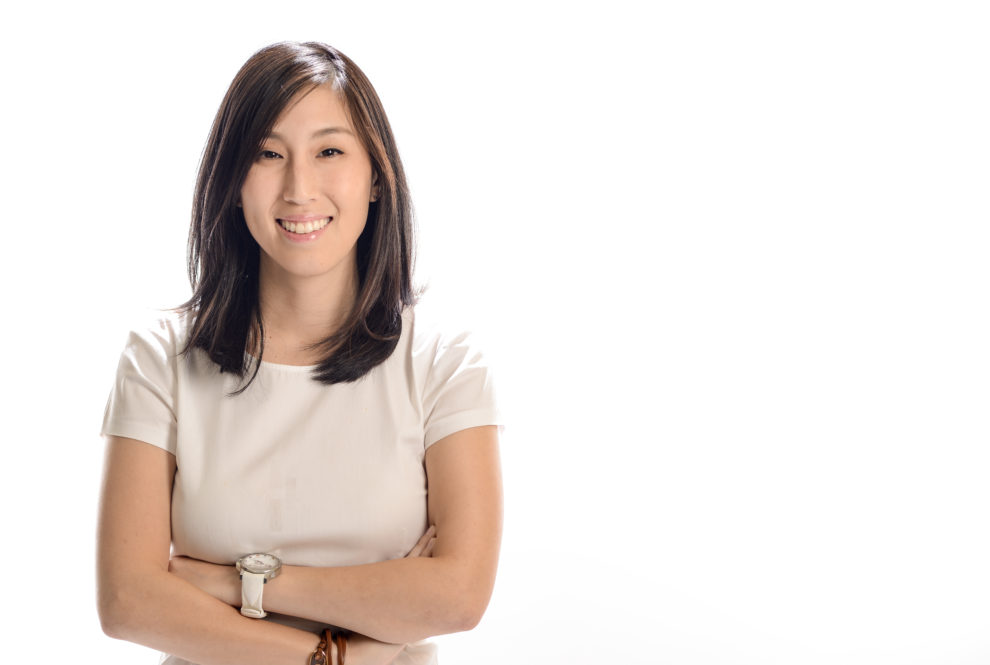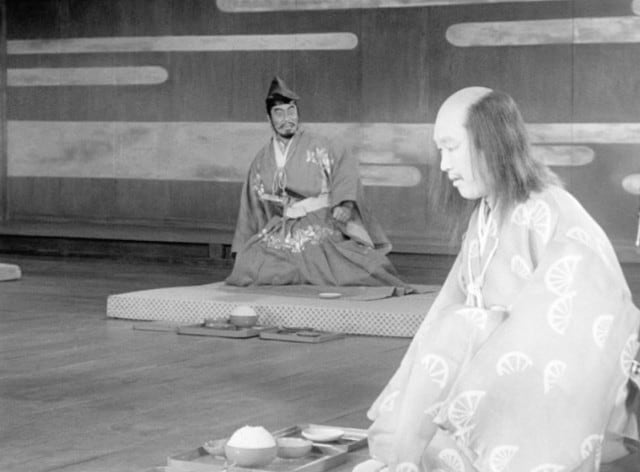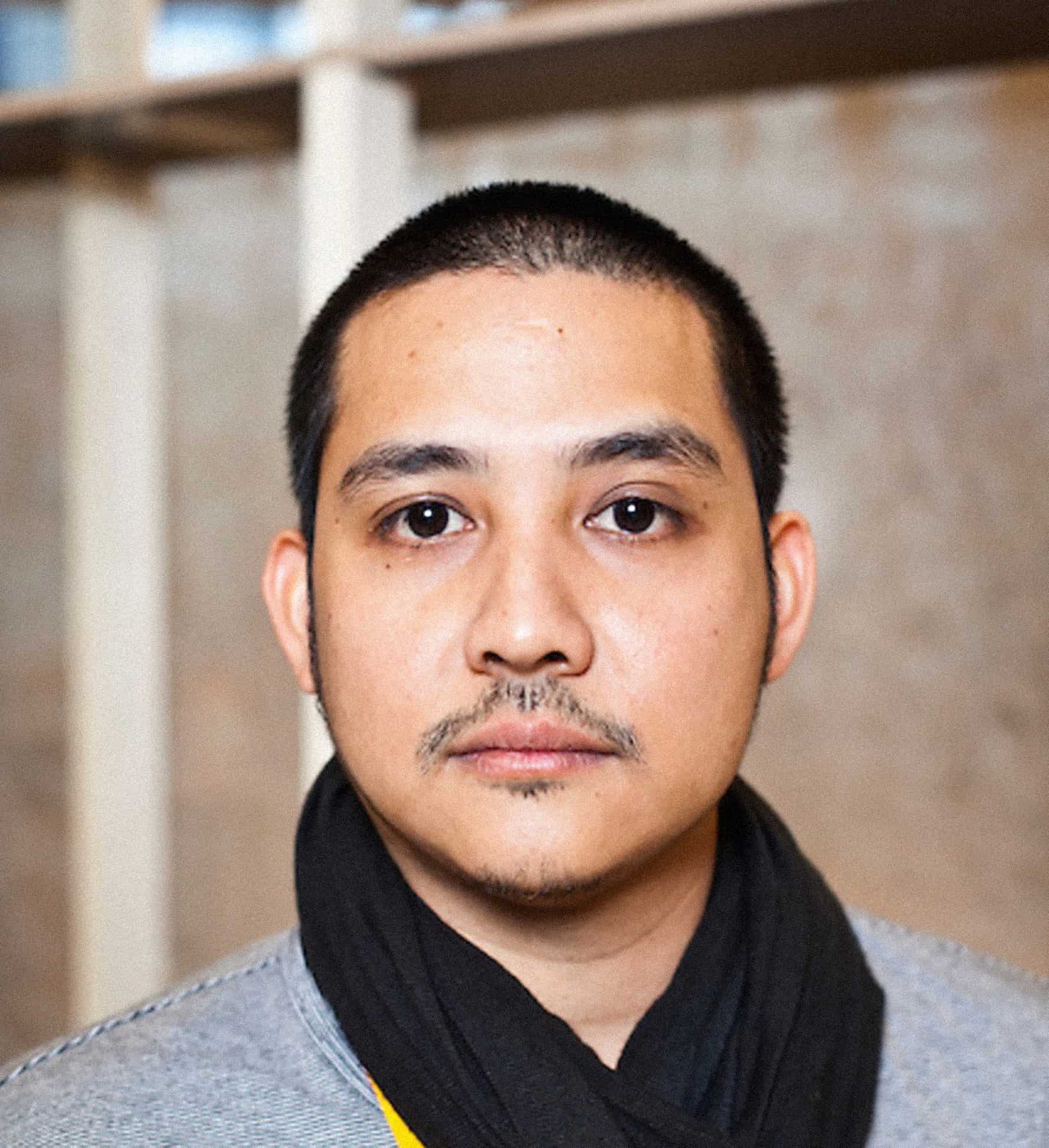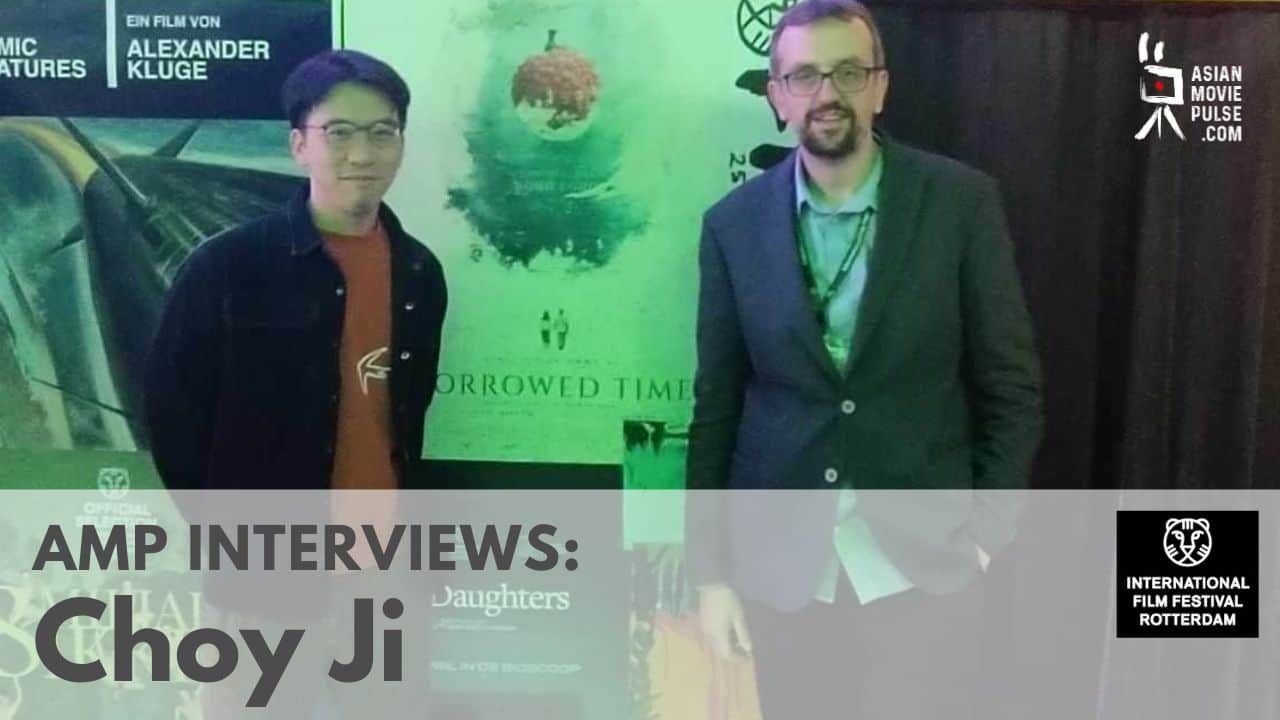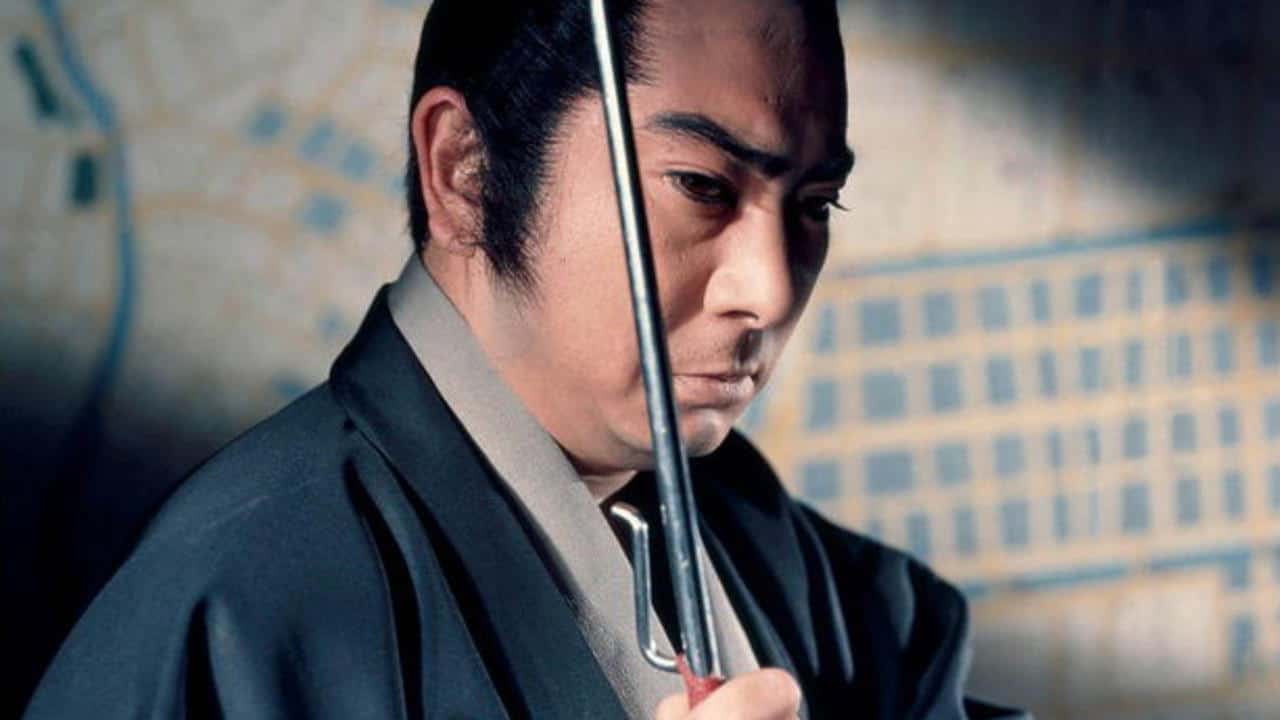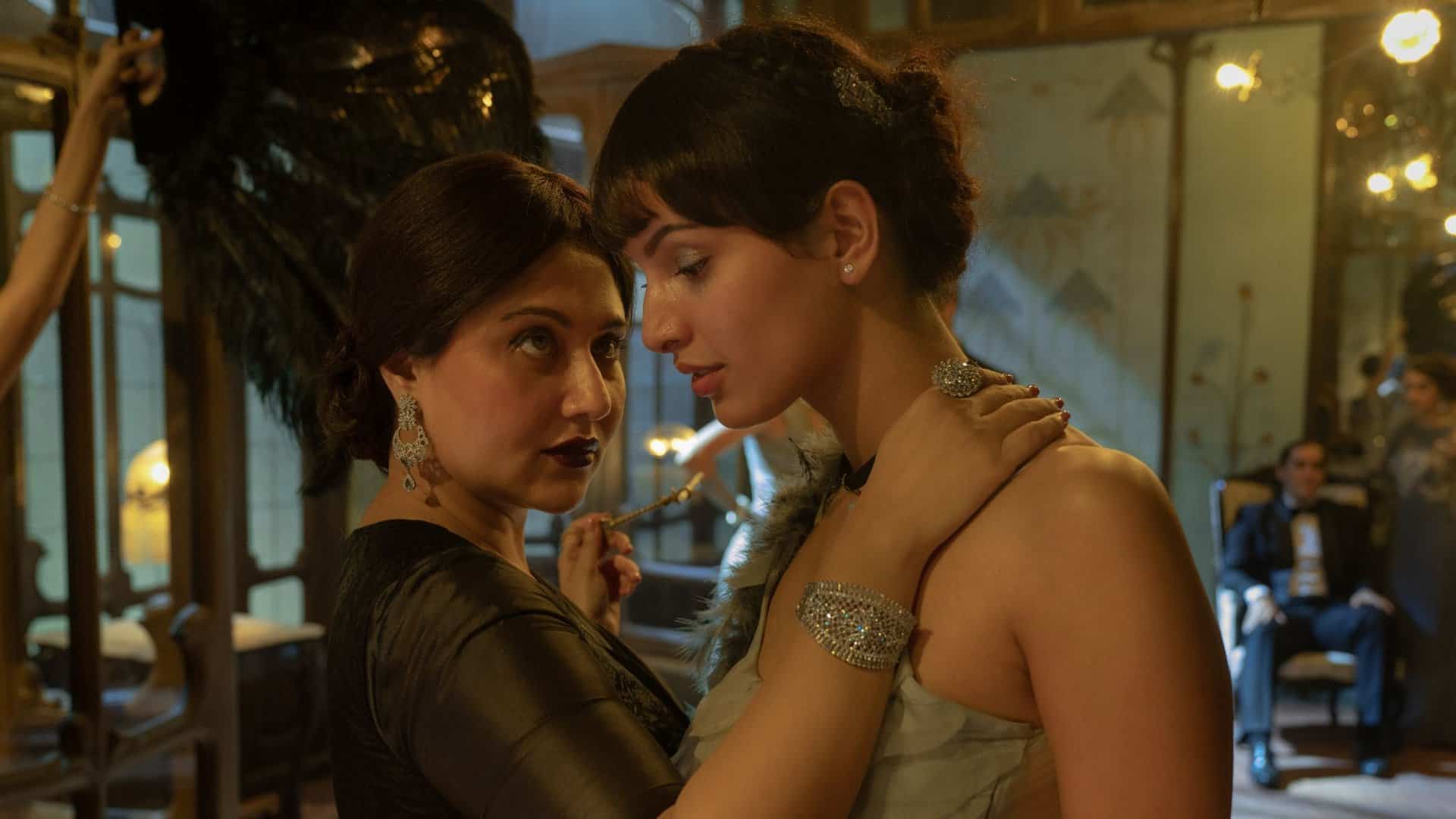Min Lim is Head of Production at award-winning production house Double Vision, which is based in Malaysia. Growing up on television sets, Min has been working on visual arts projects since she began as a production assistant at 16. She has writing, directing and live venue producing experience under her belt, but showrunning is her passion. Some of her credits include being Executive Producer of the highly acclaimed Asian adaptation of “The Bridge“, as well as award-winning sitcoms and dramas such as “Cakap Melayulah” and “Beautiful World”.
On the occasion of the second season of “The Bridge” screening on Vue and HBO Asia, we speak with her about Double Vision, The Bridge Project, the logistics of shooting a series involving cast and crew from four countries, how the pandemic will affect the industry, and many other topics.
Can you give us some details about Double Vision and its penetration in the ASEAN market?
Double Vision has been creating and producing content for more than 35 years now and it has been a really tough journey, but also an incredibly worthwhile one. Even though we are based in Malaysia, we always knew that, in order to do bigger and better projects, we would have to work on a regional level so very early on, we started to co-produce with “bigger” countries like Indonesia and the Philippines. In fact, a co-production with ABS-CBN, “A Time For Us”, got us our – and Malaysia's – first International Emmy nomination for Best Telenovela.
The grand plan has always been to produce shows on an international level but everyone needs to start somewhere so we started doing productions in Malaysia for local broadcasters and gradually worked ourselves upwards. Through the years, we worked with most of the local and regional networks on a variety of genres but, aside from what we were doing in the country, our journey out of Malaysia really began with “local” co-productions, for example, shows made in Indonesia for Indonesia, and unscripted regional shows for Asia.
I've always believed that we should and could produce scripted shows that would travel and be seen in different parts of the world – I don't mean putting together an “Asia pudding” as they often do in Europe with one cast from every different country but to actually produce shows that were authentic to their market but could also be appreciated in other territories. You only need to look at the inroads that Korean content has been making worldwide to know that this can be done. Which is why, in the last few years, we've started putting together bigger regional scripted projects such as “The Bridge“.
How did The Bridge project start, and what drew you to the original material?
“The Bridge” was truly a labour of love. I'd seen the original and loved the idea of it. It was such an organic way of involving two different markets and in fact, if you speak to the creators, they will tell you that that's actually what they set out to do. What I also loved about the story was that the set up was brilliantly simple – body on the bridge – but within the first five minutes, you are pulled in by the revelation that the body is actually two halves of two different bodies. And from that point on, you're hooked! The characters are also great – especially Saga or Serena in our version, because you really don't like her at first but by the end, you are really rooting for her!
After I saw it, I knew Malaysia and Singapore would be perfect for an adaptation because we have a bridge! But that wasn't the only reason. Crime is one of the most popular genres in South East Asia but at a local level, we've never really had enough budget to do it justice nor the writers who knew how to create a really compelling crime drama with the twists and turns necessary to keep the audience hooked. But with “The Bridge”, we had a brilliant story mapped out for us – we just needed to figure out how to adapt it in a way which made sense for our audience.
Having a compelling story was half the battle but budget was still an issue. I knew that in order for us to do it justice, we would need to produce it at a certain budget level – bigger that anything that had ever been commissioned locally out of Malaysia or Singapore.
I tried for two years to get it off the ground – trying to piece financing together from different broadcasters but no one would take it. During that period, the head writer Chi-Ren and I would meet whenever we could in a tiny café in the corner of our local supermarket to hash out what an adaptation would look like – we never gave up!
Finally, we presented it to Viu and they felt the same way we did and the rest, as they say, is history. We were so chuffed that we finally got it greenlit but when HBO Asia came on board, that just was the cream on top! And then we had to go and make the show!
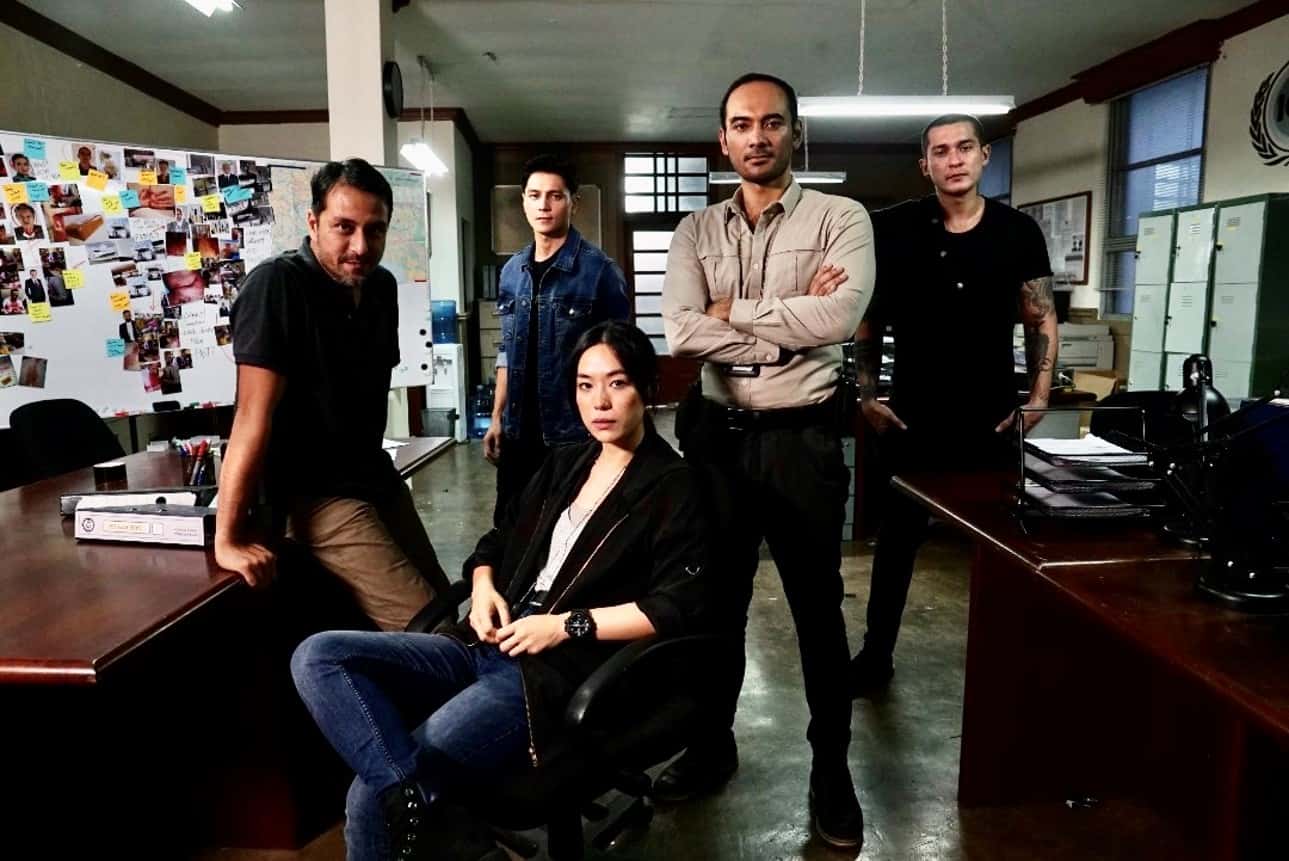
Main cast of The Bridge, Season 2
Front: Rebecca Lim,
Back from left to right: Bront Palarae, Joseph Marco, Ario Bayu, Miller Khan
Why did you decide to shoot a second season, and do you think a third will come around at some point?
If you look at the way Season 1 ended, we had always been gunning for a second season. (I mean, if you love the show you're working on, you really don't want it to just end at 10 episodes.) But it really wasn't up to us because we would always need the networks to want a second season and it so happened that they did!
Season 1 performed incredibly well – beyond anyone's expectations – and so we were lucky enough to get a Season 2.
And in terms of Season 3, I think it's going to be very much the same as Season 2. We ended Season 2 in a way that left a lot of people wanting more (and this isn't just me being up ourselves but fans have been asking on social media!) and so we definitely hope there will be a Season 3!
In terms of logistics, the production of particularly the second season seems quite a task, since the series includes actors from Malaysia, Singapore, Indonesia and the Philippines. What were the most significant difficulties and how did you manage to overcome them? Was the crew also multinational?
The logistics were a nightmare! Not only did we have a lot of actors from many different countries, we were also shooting over Christmas and New Year, so flights and the logistics of getting people in and out when they needed to be was really tough.
On top of that, we were also shooting in different countries. But I have a couple of great line producers and they held everything together. These girls are amazing and we got through it in the end, but they needed a very long holiday after! The crew was largely Malaysian so that made it slightly easier – slightly!
The second season is directed by three different directors. Why did you choose this approach and why did you add Zahir Omar in particular?
We've always wanted representation from each of the markets that the story involves and so Season 1 had two directors – Jason Chong, who represented Malaysia, and TJ Lee, who represented Singapore. We really liked working with these guys and wanted to get them back but we also needed someone who understood Indonesia, given that it is a big part of Season 2, and that was Zahir.
Of course, you always worry when you put a few directors on the same project, especially one as serialised as “The Bridge”. But I had met and spoken to Zahir at length and knew that he would get along with the other two and he did! TJ executive produced together with me on Season 1 and 2 so we decided that he would be the lead director – i.e. the one to set the tone and style – but really, what you see in the end is the three of them coming together in a great way and I couldn't have asked for more!
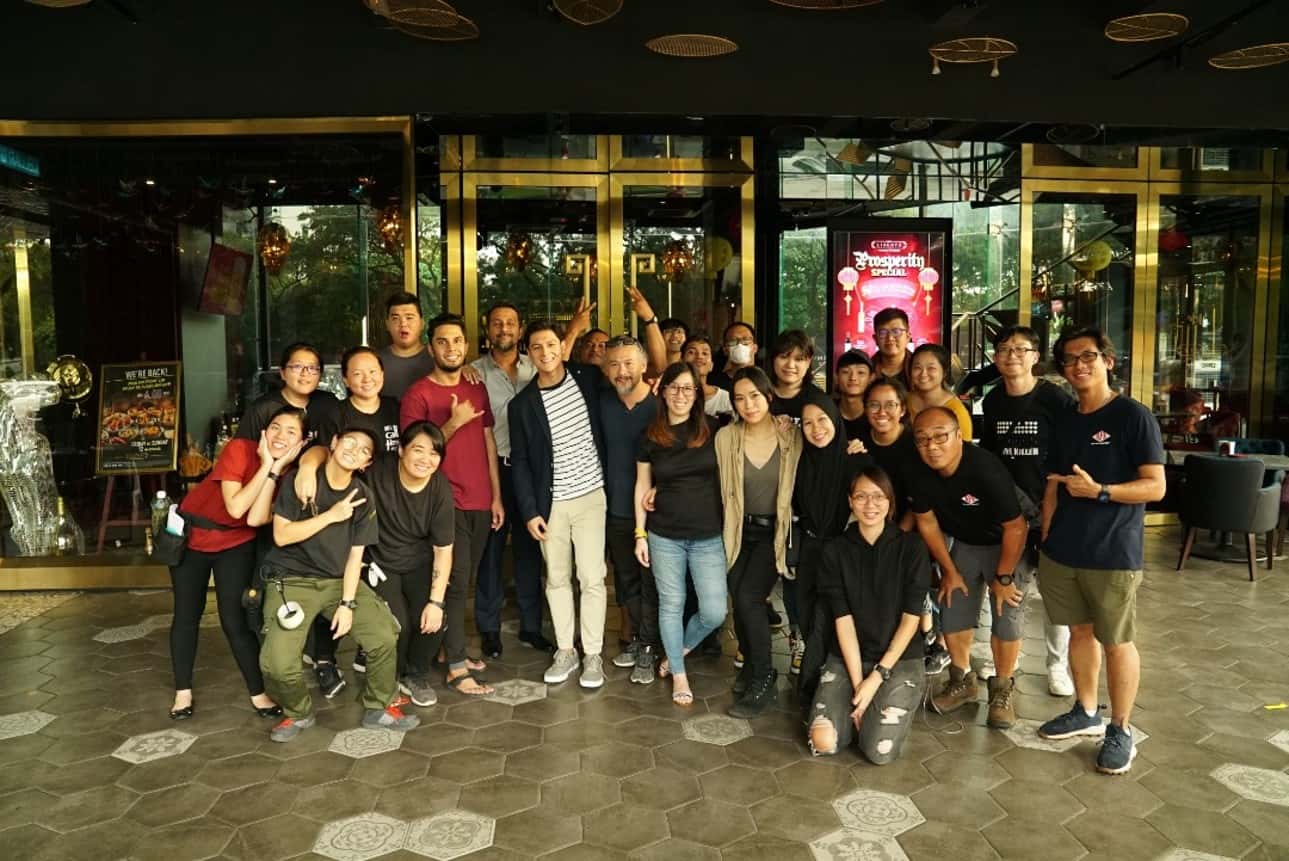
In general, how does the casting process work, both for directors and actors?
We knew that we wanted really good actors on the show as we have really complex characters, which meant that we needed actors with depth. From very early on, we decided that that it really didn't matter how big the actor was, everyone would have to read. Even Bront, who was pretty much a shoo-in for the part, read (leading Chi-Ren to comment: “my, he's a charming motherf-er!”).
So we read everyone, filmed them and then decided on our picks as a team – the directors, Chi-Ren and myself. I have the casting vote but I've never had to use it; nine times out of the ten, the decisions were unanimous. And the actors really delivered!
In your opinion, what kind of opportunities and difficulties does the expansion of the streaming platforms present? How do you think the pandemic will affect the industry?
The expansion of the streaming platforms has been great for content creators! Especially in a market like Malaysia, where it has really enabled us to push the boundaries on what is possible on screen not only from a budget perspective but from a censorship perspective as well and I think that's incredibly exciting!
It has also created some healthy competition in what has largely been a cartel market, which is also a good thing. The difficulty and I suppose it's a good problem to have, is how to produce compelling shows that work, not just for a local audience, but for a regional and possibly international one as well. All kinds of content from all over the world is available to the viewer – streaming platforms have made that possible – so the expectations are getting very high!
The pandemic has actually already had a huge impact on our industry. Most of our industry is freelance and so if people don't work, they don't get paid. When Malaysia locked down, these were the people that suffered the most, especially given that our industry doesn't pay particularly well anyway. And now, even when we're back, networks have been slow to commission. As content creators, you now have to really think about what's possible to shoot and what's not.
We need to think about the cost implications of making sets “safe” for everyone from a COVID perspective and what that will do to the already small budgets that we have. That scene with 100 extras – you can forget about it – at least for now. And then there's the intimate scenes – how do you make them compelling in a socially-distanced environment and can you even convey that emotion effectively?
The pandemic has really thrown up bigger challenges in an already challenging environment but we'll just need to find a way through and I'm sure we will – we're not called the creative industry for nothing!
How would you describe the movie/series industry in Malaysia?
Malaysia is such a complex market. We are a small country but we are not homogenous – everyone speaks different languages, comes from different cultures and watches really different types of programming. Censorship and cultural mores are also very stringent for us, which really affects the stories we can tell.
As such, budgets, on a TV level at least, have always been small – which is why we haven't really been able to produce anything that really travels because shows only speak to one quite small segment of the audience and the production value that can be had is low.
It's quite different in Indonesia where there is a stark difference. They are a large homogenous market and have a relatively relaxed approach towards censorship, which opens up an avenue for content creators to talk about things that really resonate with the audience and their local industry is booming!
So if you put those two things together, you'll see a market that has been incredibly restrictive and consequently has become very restricted. But things are definitely changing in Malaysia and we have managed to get projects like The Bridge off the ground so here's hoping!
Can you give us some details regarding the upcoming projects of Double Vision?
At the moment, we are focused on developing projects that enable us to tell compelling stories to a regional and international audience. And we want to produce shows in which the Asian characters feel authentic – not some Western perception of what Asian people are like because that's just been going on for far too long!
Fortunately, we have production partners who feel the same and so we have several international projects of this vein in development at the moment that we are very excited about – one with the UK, one with the US and two with a regional broadcaster. And that is in addition to making shows for Malaysia and chasing after a third season of The Bridge!


